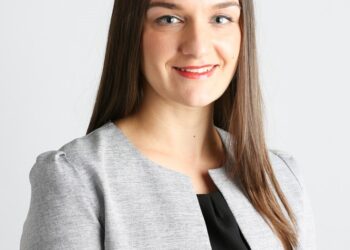Earlier this month, the ATO released draft legislative instrument intended to protect SMSF trustees from adverse compliance problems under the in-house asset rules where, due to COVID-19, a rent deferral arrangement has been put in place for tenants in the 2019–20 and 2020–21 financial years.
The draft determination provides the following compliance relief in relation to the in-house asset rules and rent deferrals:
For the purposes of paragraph 71(1)(f) of the Superannuation Industry (Supervision) Act 1993, where during the 2019–20 or 2020–21 financial years the fund:
(a) allows a related-party tenant a deferral of rental income under a lease (on arm’s length terms) due to the financial impacts of the coronavirus known as COVID-19, or
(b) holds an interest in a related party which is exempt from being an in-house asset due to the operation of regulation 13.22B or regulation 13.22C of the Superannuation Industry (Supervision) Regulations 1994, and that related party allows a tenant a deferral of rental income under a lease (on arm’s length terms) due to the financial impacts of the coronavirus known as COVID-19,
the resulting asset is not an in-house asset of the fund.
However, DBA Lawyers senior associate William Fettes said the draft instrument poses some questions that may need further clarification by the ATO in relation to the scope of the exclusion.
Mr Fettes explained that paragraph (b) of the determination refers to reg 13.22C which sets out the conditions that must be satisfied by companies and unit trusts at the time the shares or units are initially acquired by the SMSF.
“However, it not does not expressly cover reg 13.22D which sets out the triggering events which will, subsequent to the original investment, cause shares in a non-geared company or units in a non-geared unit trust to become in-house assets,” he said.
The determination, he said, does not expressly state that shares in a company or units in a unit trust covered by the exclusion will continue to enjoy this exclusion indefinitely, assuming no other triggering events have occurred aside from the rent deferral.
“This is an important point in light of the ATO view set out in SMSFD 2008/1 that triggering a condition in reg 13.22D of the SISR will mean the exclusion under s 71(1)(j) of the SISA can never again operate for the SMSF even if the circumstance that caused the event to happen no longer exists,” he said.
Mr Fettes acknowledged that the ATO has provided reasonably clear guidance on these issues and their overall compliance approach in non-binding channels, such as the “COVID-19 – frequently asked questions” webpage, and in the latest addendum to the auditor contravention report instructions for SMSF auditors.
In the addendum to the auditor contravention report instructions, the ATO states that in relation to rent deferrals provided by division 13.3A entities, “it will not treat the investment in the interposed entity as an in-house asset in current and future financial years as a result of a deferral of rent being provided to the tenant due to the financial effects of COVID-19”.
“This means we won’t take compliance action against the breach in the current and future financial years,” the ATO states.
“This means you do not need to report an in-house asset contravention for current and future financial years providing the above three requirements are met — that is, if the rental relief is on commercial terms, is due to the impacts of COVID-19 and is adequately documented.”
However, on the basis of the current language in the draft determination, Mr Fettes said the position of SMSF trustees and auditors is not adequately clear.
“Indeed, auditors may be obliged to report in-house assets concerns in relation to SMSFs with investments in div 13.3A entities that have provided a rent deferral for future financial years,” he said.


